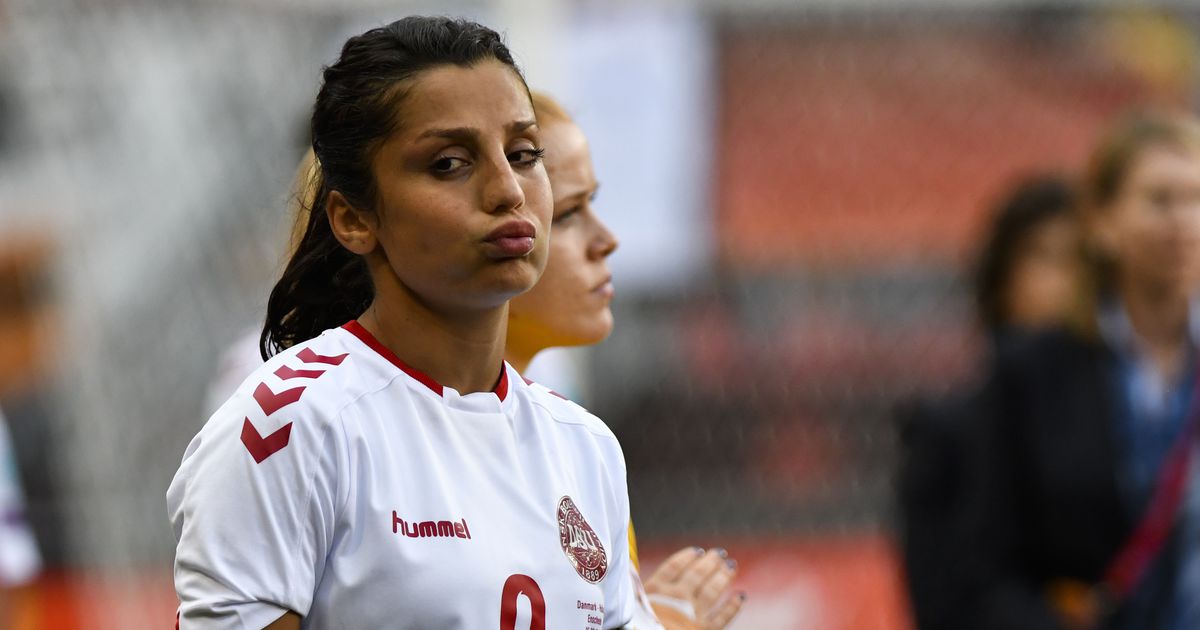Nadim plans return to Afghanistan to inspire girls in soccer


LONDON (AP) — Two decades after fleeing Taliban-ruled Afghanistan with her family, Nadia Nadim is ready to go home.
“I don’t know if it’s ever going be safe,” the Paris Saint-Germain striker said in an interview with The Associated Press. “But I’ll take the chance.”
The risks are worth it for the 31-year-old Nadim, who is planning her first trip back to Afghanistan since leaving the country as a child. She is hoping to change mindsets and inspire girls to follow her onto the soccer field.
“The message I want to deliver to these kids is that everything’s possible and then telling them what they’re doing is not wrong,” Nadim said. “Playing football is not a sin. You’re not doing anything wrong. It’s a sport. It’s something that makes you happy.
“And the people around them, if I can try to teach them or show them that if you love these girls, they can become people like me.”
For Nadim, the chance to become that person only came about because of a family tragedy and a move to Denmark. Her career as an athlete would have been unimaginable in Afghanistan, especially after the Taliban seized control in 1996. Girls were not allowed to go to school, let alone play soccer.
But one day, Nadim’s father — an Afghan military general — was summoned to meet with the Taliban leaders and never returned.
“Growing up in a country where there is war and where girls weren’t really allowed anything, it was extremely hard,” she recalled. “Having my dad killed when I was young and escaping the country was no joke … and I’m just happy that I got a second chance and I made the best out of my second chance.”
The journey to a new life began in 2000 via Pakistan and Italy before being dropped off by a smuggler in Denmark. Asylum was granted after spending six months in a Copenhagen refugee camp, and Nadim discovered her skill for soccer in her adopted homeland.
“I saw the game,” she said, “and I was like, ‘I like it.’”
By 2009, she was playing for the Denmark national team. In 2014, she earned a move to the biggest women’s soccer nation in the world when she was signed by the New Jersey-based Sky Blue.
After spending 2016 and 2017 at Portland Thorns, Nadim spent the following year in England’s top league at Manchester City before securing the move to PSG, which is challenging Lyon for the French title.
“I play in one of the world’s best teams, have people who support me, have brands who support me,” Nadim said, sitting at the London headquarters of her sponsor Visa. “I couldn’t really imagine this when I was younger and one of the reasons is because I’d never seen it before … until I became 15, 16, I realized that’s something I could do.
“But I want this to be something that girls realize that it’s a possibility or have that possibility. It’s not even about being a professional, but about playing football. That’s the day I’m going to be really happy.”
Even in Europe, though, the fight for equality in soccer hasn’t been easy.
A pay dispute in 2017 with the Danish soccer leadership led to the women’s national team going on strike and forcing the cancelation of a World Cup qualifier. The pressure secured a four-year collective bargaining agreement.
“You have to fight for the things you believe in, even though that’s going to cost you,” Nadim said. “That’s what happened with the strike … and us not qualifying for the World Cup. I don’t think we would have done anything differently. I think if you had a chance to redo it, I’ll try to do the same thing, but then try not to miss the World Cup.
“But I think the change we made has been crucial not for me, not for us, but the generations after us. I think everything starts at some point. You have to take a stand and try to change it. I think that’s what we did and I hope that in 10 years, the girls playing are going to be benefiting from it.”
In her homeland, the struggle has been to bring the Afghan soccer leadership to justice after players spoke out about facing repeated sexual abuse.
“They should be proud of themselves, that they came forward and told these stories and took a stand because that’s going to change and help the next generation of girls,” Nadim said. “If they didn’t say anything, the cycle would just continue. That takes a lot of courage. And, for me, they’re really, really brave.”
FIFA this week imposed a five-year ban from soccer on Mohammad Hanif Sediqi Rustam for failing to report complaints over several years. He was a secretarial assistant to Keramuudin Karim, the now-disgraced former soccer federation president, who was banned for life by FIFA in June.
“It’s disgusting that some people would use or abuse their power,” Nadim said.
And Nadim is in awe of the strength of the players taking on figures in authority.
“Sometimes achieving your goals are not supposed to be easy,” she said. “And I hope in the future I can do something for them as well.”
That is part of the reason she is working on organizing that trip back home.
“I’d love to go back and see how everything is, to try to help some of the kids,” she said. “I want this to be something girls realize … you have the access to the game equally as all the boys and then it’s up to you if you want to play or not.”





